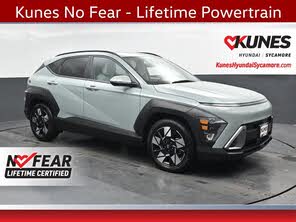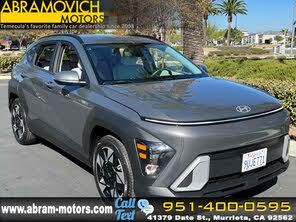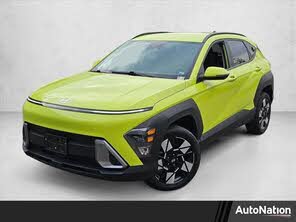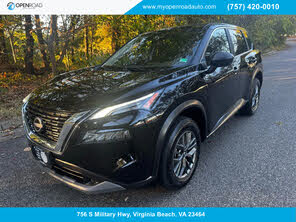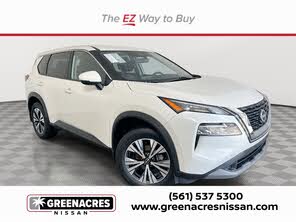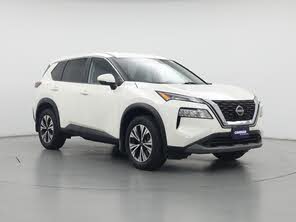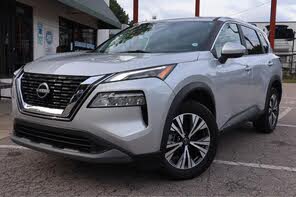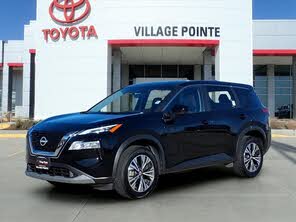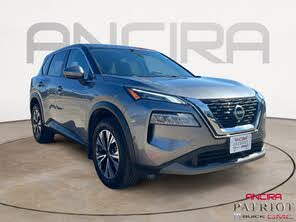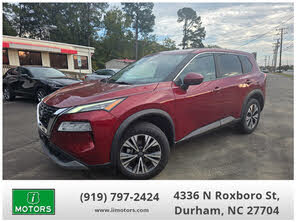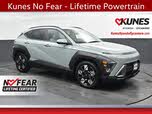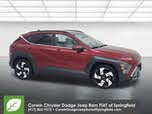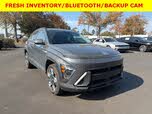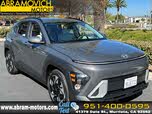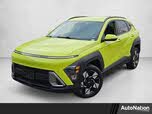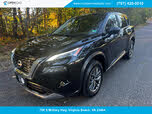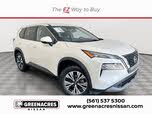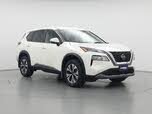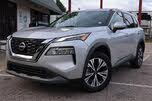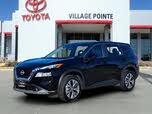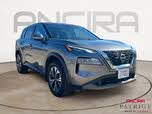2024 Hyundai Kona vs 2023 Nissan Rogue
Overview | |
MSRP$28,010 | MSRP$24,250 |
Listings9449 | Listings1153 |
Ratings & Reviews | |
User Reviews | User Reviews |
Expert reviews6.7 out of 10 | Expert reviews8.3 out of 10 |
Pros
Cons
| Pros
Cons
|
2023 Nissan Rogue Reviews SummaryThe 2023 Nissan Rogue is critical to the automaker’s success. Last year, this compact crossover SUV was the 16th best-selling vehicle in America, significantly outselling the company’s Altima midsize sedan and every other Nissan available in U.S. showrooms. Two years ago, Nissan redesigned the Rogue. Last year, it added a new turbocharged engine. Now, for the 2023 model year, the Rogue SV is available with a new Midnight Edition package that blacks out the exterior trim, while the Rogue Platinum adds Amazon Alexa compatibility. Still, the Rogue faces fresh competition from the redesigned Honda CR-V and Kia Sportage, the all-new Mazda CX-50, and a plug-in hybrid Mitsubishi Outlander. | |
2024 Hyundai Kona Reviews SummaryThe previous-generation Hyundai Kona debuted for 2018 and got an electric counterpart when the Kona EV hit the market the following year. Hyundai's subcompact SUV got a refresh for 2022, which also saw the addition of the hot-hatch Kona N to the stable. Now, the Kona kicks off a whole new generation, with a new look, new tech, and, naturally, a new price tag to match. In a crowded segment, do the new features match—or perhaps even exceed—the added cost? | |
No video found | |
Popular Features & Specs | |
Engine1.5L 201 hp I3 | Engine2.0L 147 hp I4 |
Drive TrainFWD | Drive TrainFWD |
Seating Capacity5 | Seating Capacity5 |
Horsepower201 hp @ 5600 rpm | Horsepower147 hp @ 6200 rpm |
MPG City30 | MPG City29 |
MPG Highway37 | MPG Highway34 |
Engine | |
Engine Name1.5L 201 hp I3 | Engine Name2.0L 147 hp I4 |
Torque225 lb-ft @ 4000 rpm | Torque132 lb-ft @ 4500 rpm |
Horsepower201 hp @ 5600 rpm | Horsepower147 hp @ 6200 rpm |
DrivetrainFWD | DrivetrainFWD |
Fuel Economy | |
MPG City30 | MPG City29 |
MPG Highway37 | MPG Highway34 |
Interior | |
Seating Capacity5 | Seating Capacity5 |
Key Features | |
Navigation System | Navigation SystemStandard |
Safety | |
Front Crash Overall4 | Front Crash Overall4 |
Side Crash Overall5 | Side Crash Overall5 |
Dimensions & Capacity | |
Cargo Space31.6 cu ft | Cargo Space25.5 cu ft |
Curb Weight3457 lbs | Curb Weight3005 lbs |
Height66.5 in | Height62.2 in |
Length183.0 in | Length171.3 in |
Width72.4 in | Width71.9 in |
Wheelbase106.5 in | Wheelbase104.7 in |
Maximum Payload1101 lbs | Maximum Payload1085 lbs |
Number of doors4 | Number of doors4 |
Overview | ||
MSRP | $28,010 | $24,250 |
Listings | ||
Ratings & Reviews | ||
User reviews | ||
Expert reviews | 6.7 out of 10Read full review | 8.3 out of 10Read full review |
Pros & cons | Pros
Cons
| Pros
Cons
|
Summary | The 2023 Nissan Rogue is critical to the automaker’s success. Last year, this compact crossover SUV was the 16th best-selling vehicle in America, significantly outselling the company’s Altima midsize sedan and every other Nissan available in U.S. showrooms. Two years ago, Nissan redesigned the Rogue. Last year, it added a new turbocharged engine. Now, for the 2023 model year, the Rogue SV is available with a new Midnight Edition package that blacks out the exterior trim, while the Rogue Platinum adds Amazon Alexa compatibility. Still, the Rogue faces fresh competition from the redesigned Honda CR-V and Kia Sportage, the all-new Mazda CX-50, and a plug-in hybrid Mitsubishi Outlander. | The previous-generation Hyundai Kona debuted for 2018 and got an electric counterpart when the Kona EV hit the market the following year. Hyundai's subcompact SUV got a refresh for 2022, which also saw the addition of the hot-hatch Kona N to the stable. Now, the Kona kicks off a whole new generation, with a new look, new tech, and, naturally, a new price tag to match. In a crowded segment, do the new features match—or perhaps even exceed—the added cost? |
Video | No video found | |
Popular Features & Specs | ||
Engine | 1.5L 201 hp I3 | 2.0L 147 hp I4 |
Drive Train | FWD | FWD |
Seating Capacity | 5 | 5 |
Horsepower | 201 hp @ 5600 rpm | 147 hp @ 6200 rpm |
MPG City | 30 | 29 |
MPG Highway | 37 | 34 |
Engine | ||
Engine Name | 1.5L 201 hp I3 | 2.0L 147 hp I4 |
Torque | 225 lb-ft @ 4000 rpm | 132 lb-ft @ 4500 rpm |
Horsepower | 201 hp @ 5600 rpm | 147 hp @ 6200 rpm |
Drivetrain | FWD | FWD |
Fuel Economy | ||
MPG City | 30 | 29 |
MPG Highway | 37 | 34 |
Interior | ||
Seating Capacity | 5 | 5 |
Key Features | ||
Navigation System | Standard | |
Safety | ||
Front Crash Overall | 4 | 4 |
Side Crash Overall | 5 | 5 |
Dimensions & Capacity | ||
Cargo Space | 31.6 cu ft | 25.5 cu ft |
Curb Weight | 3457 lbs | 3005 lbs |
Height | 66.5 in | 62.2 in |
Length | 183.0 in | 171.3 in |
Width | 72.4 in | 71.9 in |
Wheelbase | 106.5 in | 104.7 in |
Maximum Payload | 1101 lbs | 1085 lbs |
Number of doors | 4 | 4 |
The 2023 Nissan Rogue offered a design that reflected a conservative yet stylish approach. The Rogue had proper proportions and chiseled styling making it an attractive SUV. Its rugged detailing was subtle yet effective, helping it convey a sense of durability and robustness. Buyers found this appealing since aesthetics play a crucial role in vehicle selection. The Rogue’s lineup consisted of S, SV, SL, and Platinum trim levels, with prices ranging from $27,360 to $37,140, and an additional $1,295 for the destination charge. These trims could be further enhanced with optional Premium packages, and the SV trim had an exclusive Midnight Edition package.
The Platinum trim, which was tested, came loaded with additional features such as AWD, two-tone paint, and a host of interior and exterior upgrades like accent lighting, illuminated kick plates, and a first-aid kit. These extras increased the MSRP to $43,100, pushing the Rogue into the entry-luxury territory, overlapping with the luxury compact crossover segment. The Platinum trim’s diamond-pattern leather seats and soft-touch materials added an upscale feel, meeting the quality standards of the compact SUV segment.
On the other hand, the 2024 Hyundai Kona was designed with an electric vehicle (EV) aesthetic from the outset. Its grille mirrored the design of the Ioniq 5 more than the previous Kona, highlighting its electric powertrain roots with a single-piece appearance. This new iteration featured the “seamless horizon” styling seen on the new Sonata, with a single, slim LED headlight dominating the front. Despite being nearly 6 inches longer, the Kona retained its recognizable silhouette but showcased modern updates. The new creased “parametric surface” doors and substantial black body cladding on SE, SEL, and Limited trims, gave it a more angular look, while the N-Line sported body-colored wheel arches.
Standard LED headlights, taillights, and daytime running lights enhanced the Kona's look, complemented by the seamless horizon rear taillight. The wheels varied by trim, with 17-inch wheels standard and 18-inch wheels for SEL, and 19-inch wheels for N-Line and Limited trims. Inside, the Kona's cabin was significantly updated with a driver-oriented center stack, a relocated gear shift to a stalk on the steering column, and a new curved display housing both driver information and infotainment screens. The vents, climate controls, and dashboard were also refined.

















The 2023 Nissan Rogue featured a significant powertrain overhaul from its previous model. Initially debuted with a 2.5-liter four-cylinder engine, the Rogue switched in 2022 to a turbocharged 1.5-liter three-cylinder engine with Nissan's variable compression design. This VC-Turbo engine aimed to combine performance and fuel efficiency, producing 201 horsepower at 5,600 rpm and 225 lb-ft of torque between 2,800 and 4,000 rpm. Paired with a continuously variable automatic transmission (CVT) equipped with paddle shifters, this engine powered the Rogue's front wheels or an optional AWD system. The Rogue offered multiple driving modes, including Eco, Auto, Sport, Off-Road, and Snow for AWD models.
Despite its promising specs, the Rogue's new powertrain had mixed reviews. While it felt responsive during urban driving, it lacked highway passing power and sometimes transmitted an unusual engine note and pedal vibrations, potentially off-putting to some drivers. Fuel economy was another concern, with the test vehicle averaging 28.9 mpg compared to the EPA’s 31 mpg expectation. Nissan’s ride quality and handling enhancements, such as Intelligent Trace Control and Active Ride Control, offered a balanced ride over various terrains, though undulating roads highlighted some lateral and vertical body motion. Moreover, the 19-inch all-season tires limited grip and generated considerable noise on patched pavement. Overall, the Rogue provided a stable and composed ride but lacked a lively steering feel.
In contrast, the 2024 Hyundai Kona retained its predecessor's engine options while updating the transmission. The base models, SE and SEL, featured a naturally aspirated 2.0-liter four-cylinder engine producing 147 horsepower and 132 lb-ft of torque, paired with a CVT. The higher trims, N-Line and Limited, came with a turbocharged 1.6-liter four-cylinder engine generating 190 horsepower and 195 lb-ft of torque, now coupled with an eight-speed automatic transmission replacing the previous seven-speed dual-clutch transmission (DCT). Paddle shifters were included with the N-Line and Limited trims, and the SEL Convenience Package added them to the non-turbo model.
Test drives of the Kona Limited on Maryland roads revealed that the turbo engine, despite its power figures, felt somewhat sluggish during pick-up. Nevertheless, the Kona impressed with its intuitive steering and agile handling, particularly evident in urban environments. The Kona offered FWD as standard, with an AWD option available across all trims for an additional $1,500, affecting fuel economy which decreased slightly with AWD.
For many, the choice between a compact SUV and a midsize car came down to practical concerns, where the 2023 Nissan Rogue excelled. Its elevated seating position made entry and exit convenient, while providing excellent visibility. AWD and additional ground clearance added confidence in adverse weather. Inside, the Rogue comfortably accommodated four passengers, with room for a fifth if needed. The Platinum trim featured a triple-zone climate control system, a panoramic sunroof, and premium semi-aniline leather upholstery. Both front seats were power-adjustable and heated, but lacked ventilation, with Zero Gravity seat designs enhancing comfort, though height adjustment for the front passenger was absent.
Storage was a strong suit for the Rogue, offering numerous compartments and up to 36.5 cubic feet of cargo space behind the rear seats. The Divide-N-Hide cargo system expanded this to 74.1 cubic feet with the seats folded, supplemented by underfloor storage options. However, the rough contrast button-less key fob was a notable design flaw, complicating use in low light. Rear door openings at nearly 90 degrees facilitated easy loading, and amenities like rear climate controls, charging ports, window shades, and heated seats catered to passenger comfort. Nevertheless, the low rear seat bottom cushion and diamond-shaped pleats reduced overall comfort, diverging from the front-seat experience.
The 2024 Hyundai Kona benefited from its increased dimensions, most evident in the rear seating and cargo area. Rear-seat passengers enjoyed 38.2 inches of legroom, a marked improvement over the previous model and competitors like the Toyota Corolla Cross. Headroom also increased to 38.3 inches when equipped with a sunroof. The cargo capacity saw a significant jump to 25.5 cubic feet with the rear seats up and 63.7 cubic feet with them folded, substantially more than its predecessor. The hands-free power liftgate facilitated access to the expanded cargo space.
Inside, the Kona featured practical storage solutions, such as a passenger-side dash shelf and a rubberized surface on the wireless charging pad to prevent items from sliding. However, the center console's small, shallow covered area was less functional. Seat materials ranged from cloth on lower trims to a leather/suede combination on the N-Line and H-Tex leatherette on the Limited, which also included standard ventilated front seats and a heated steering wheel for the first time. Heated front seats were available from the SEL trim upwards.
Nissan's use of its older infotainment system in the 2023 Rogue underscored a need for an update. The system featured an 8-inch or optional 9-inch touchscreen with physical knobs and buttons for easy access. The test model sported the 9-inch display, offering Bluetooth, satellite radio, wireless Apple CarPlay, wired Android Auto, NissanConnect services with a Wi-Fi hotspot, and navigation. Unfortunately, the Alexa Built-in feature performed subpar, often failing to understand and execute basic commands. The Rogue also included a 12.3-inch digital instrumentation display and a head-up display (HUD), both effective during testing despite adverse weather conditions.
For 2024, the Hyundai Kona significantly upgraded its technological offerings. A 12.3-inch touchscreen display became standard, replacing the previous 8-inch base and 10.25-inch higher-trim screens. While wireless Apple CarPlay and Android Auto were initially available only on lower trims, Hyundai promised an OTA update to bring these features to the top trims as well. The Kona’s infotainment system also included wireless device charging and a Wi-Fi hotspot. The standard six-speaker system was upgraded by Bose for higher trims. Front and rear USB-C ports ensured all passengers had charging access.
Driver information displays varied, with SE and SEL trims retaining a 4.2-inch screen while dual 12.3-inch screens were available with the Convenience Package and standard on N-Line and Limited trims. OTA updates and Hyundai Bluelink connected services, with lifetime subscriptions, ensured the Kona's technology remained up-to-date and accessible.
Safety was a strong point for both the 2023 Nissan Rogue and the 2024 Hyundai Kona. The Rogue came standard with 10 airbags, a rear-seat reminder system, and Safety Shield 360, which included forward-collision warning, pedestrian detection, automatic emergency braking, rear automatic braking, blind-spot monitoring, rear cross-traffic alert, lane-departure warning, and automatic high-beam headlights. Higher trims offered advanced features like ProPilot Assist with Navi-link, combining adaptive cruise control with lane-centering assistance, which worked well during freeway testing despite some activation lag and abrupt braking.
The Rogue earned a Top Safety Pick+ from IIHS for 2022, albeit with Marginal and Acceptable ratings in updated crash tests. NHTSA awarded it a five-star overall rating, though frontal-impact scores were four stars for both the driver and passenger.
The Hyundai Kona also impressed with its safety features. For 2023, it included standard Safe Exit Warning, blind-spot collision avoidance, and rear cross-traffic collision avoidance. The 2024 model bolstered these features with standard high-beam assist, adaptive cruise control for N-Line and Limited trims, and Surround View Monitor and blind-spot view monitor for the Limited trim. Hyundai's Highway Driving Assist suite performed admirably during testing, providing smooth and intuitive lane-keeping assistance.
CarGurus highlights
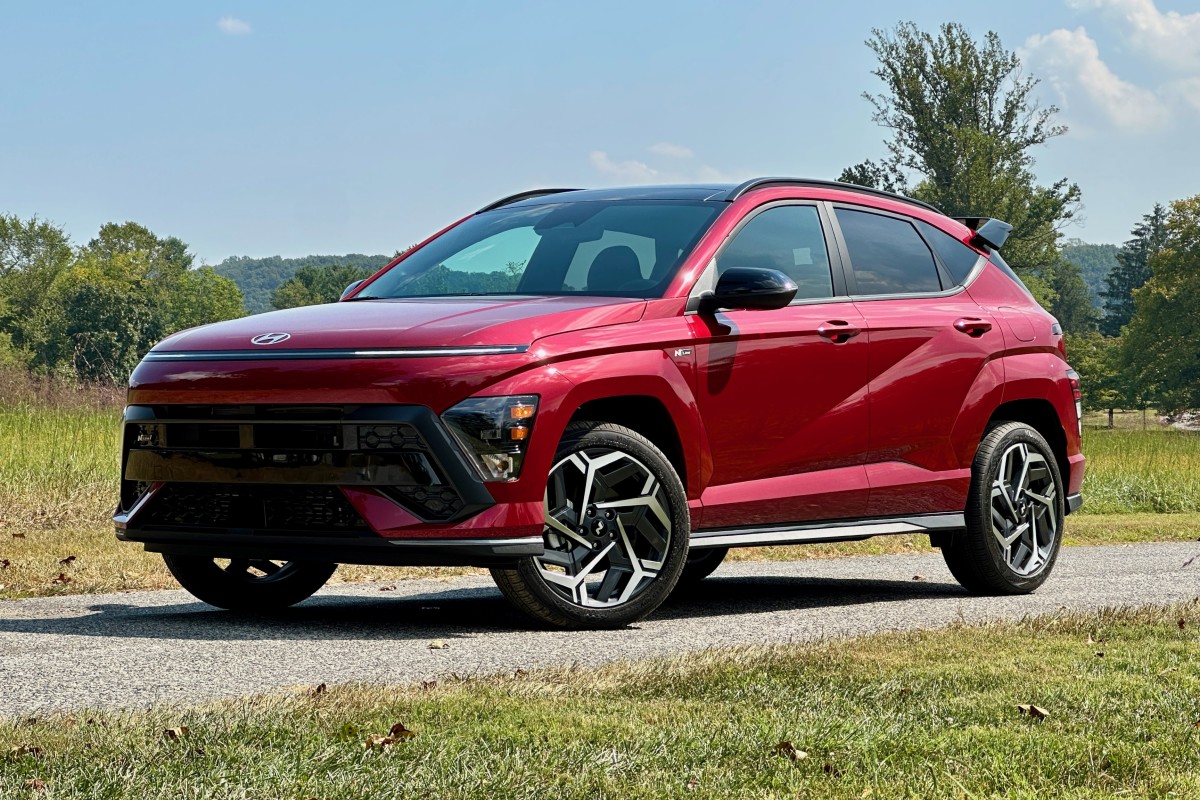
According to CarGurus experts, the overall rating for the 2023 Nissan Rogue was 6.7 out of 10, while the 2024 Hyundai Kona scored an impressive 8.3 out of 10. Based on these ratings, the 2024 Hyundai Kona emerged as the better choice. It offered superior technology, enhanced comfort and practicality, and comprehensive safety features, making it the more compelling option among the two vehicles.
Choose the 2024 Hyundai Kona if:
- You prefer a modern, electric vehicle-inspired design with updated styling elements.
- You need increased rear-seat legroom and headroom, along with significantly expanded cargo space.
- You seek the latest technology with larger, standard infotainment screens and extensive driver assistance features.
Choose the 2023 Nissan Rogue if:
- You prioritize a more established, stylish design with rugged detailing.
- You prefer a spacious cargo area with advanced flexibility and underfloor storage.
- You value a combination of upscale interior materials and comprehensive driving assistance technologies.
CarGurus highlights

According to CarGurus experts, the overall rating for the 2023 Nissan Rogue was 6.7 out of 10, while the 2024 Hyundai Kona scored an impressive 8.3 out of 10. Based on these ratings, the 2024 Hyundai Kona emerged as the better choice. It offered superior technology, enhanced comfort and practicality, and comprehensive safety features, making it the more compelling option among the two vehicles.
Choose the 2024 Hyundai Kona if:
Shop Now- You prefer a modern, electric vehicle-inspired design with updated styling elements.
- You need increased rear-seat legroom and headroom, along with significantly expanded cargo space.
- You seek the latest technology with larger, standard infotainment screens and extensive driver assistance features.
Choose the 2023 Nissan Rogue if:
Shop Now- You prioritize a more established, stylish design with rugged detailing.
- You prefer a spacious cargo area with advanced flexibility and underfloor storage.
- You value a combination of upscale interior materials and comprehensive driving assistance technologies.

By: CarGurus + AI
At CarGurus, our team of experienced automotive writers remain at the heart of our content operation, conducting hands-on car tests and writing insightful guides that are backed by years of industry experience. To complement this, we are harnessing AI to make our content offering more diverse and more helpful to shoppers than ever. To achieve this, our AI systems are based exclusively on CarGurus content, ratings and data, so that what we produce is both unique to CarGurus, and uniquely helpful to car shoppers.

